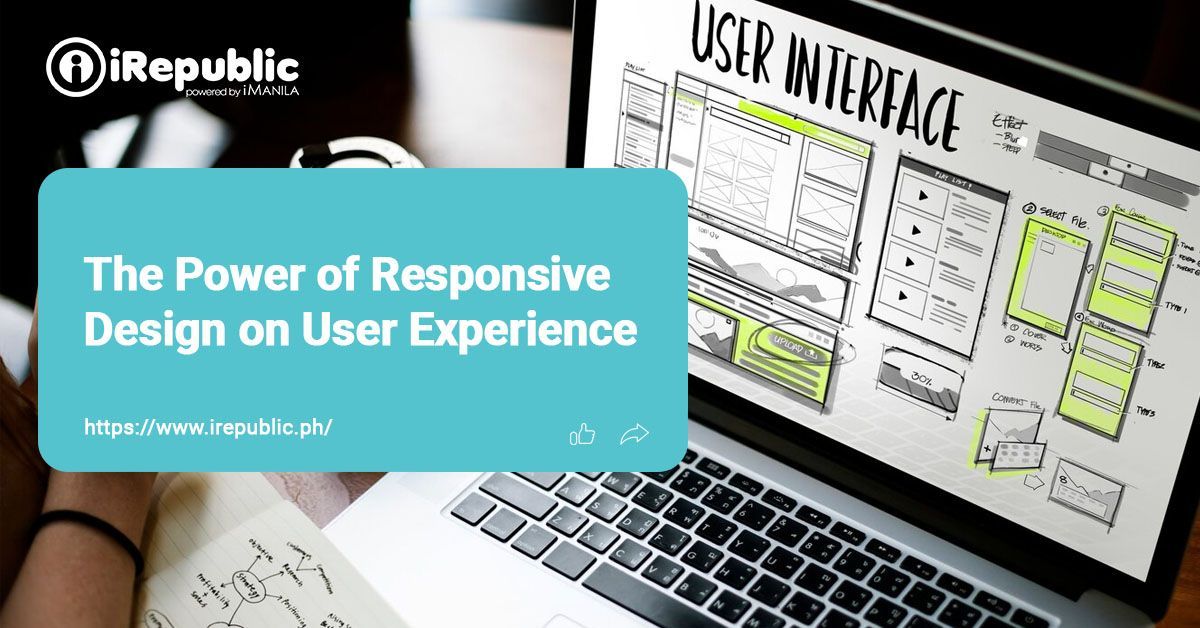The Power of Responsive Design on User Experience
With the increasing number of devices accessing the internet daily, ensuring a seamless user experience is paramount. At the core of this digital evolution lies a fundamental element - website design. In this blog post, we will delve into the transformative power of responsive design on user experience, exploring how it can elevate your website's performance across various devices and leave a lasting impression on your audience.
Why Website Design Matters:
Your website is the first encounter many potential customers have with your business. It's not just about aesthetics; it's about creating an immersive and user-friendly environment. This is where the concept of website design takes center stage. How your website is crafted can significantly impact how users interact with your brand online.
Understanding Responsive Design:
Responsive design makes websites adapt effortlessly to visitors' screen sizes and devices. It ensures that the user interface remains intuitive and visually appealing whether someone is accessing your site from a desktop, tablet, or smartphone. This adaptability is not just a luxury; it's a necessity in today's digital ecosystem.
Enhancing Cross-Device Accessibility:
The ubiquity of smartphones and tablets demands a website that caters to various screen sizes. Responsive design ensures your website looks and functions seamlessly on any device. This adaptability improves user experience and positively influences search engine rankings. Google, for instance, prioritizes mobile-friendly websites in its search results, making responsive design a crucial element for organic visibility.
Optimizing Page Load Speed:
User attention spans are shrinking, and a slow-loading website can be a significant turn-off. Responsive design goes beyond adapting to different devices; it also involves optimizing your website's performance. By ensuring that images are appropriately sized and unnecessary elements are eliminated for smaller screens, responsive design contributes to faster page load times. This, in turn, reduces bounce rates and keeps users engaged.
Streamlining Maintenance Efforts:
Managing separate websites for distinct devices can be a logistical nightmare. Responsive design streamlines the maintenance process by providing a unified platform. Updates, content changes, and bug fixes must be implemented only once, ensuring consistency across all devices. This saves time and minimizes the risk of inconsistencies that can arise when managing multiple versions of a website.
Unleashing the Potential of Adaptive Images
Responsive design isn't just about rearranging elements on a page; it's about optimizing every aspect for various devices. Adaptive images are a prime example of this principle in action. These images automatically adjust their size and resolution based on the user's device, ensuring that graphics are clear and load quickly, regardless of screen size.
Conclusion
In the fast-paced world of website design, responsiveness is the key to staying ahead. A website that adapts seamlessly to various devices enhances user experience and boosts your online presence. If you're ready to transform your website and provide an unparalleled user experience, consider iRepublic for your web design and development needs. Our affordable website builder brings your vision to life while ensuring responsiveness and optimal performance across all devices. Contact us today!
iRepublic helps you create and implement a fully effective, mobile-responsive business website. We have
available website packages from info sites to e-commerce websites with hundreds of website design templates that you can choose from. Our expertise range from creating a website for businesses and business website design to
digital marketing. Our websites are fully equipped and are also packaged with email hosting - perfect for your small business! Get started on your business' online journey today.
Contact us now, and let's make your business' online vision happen!












